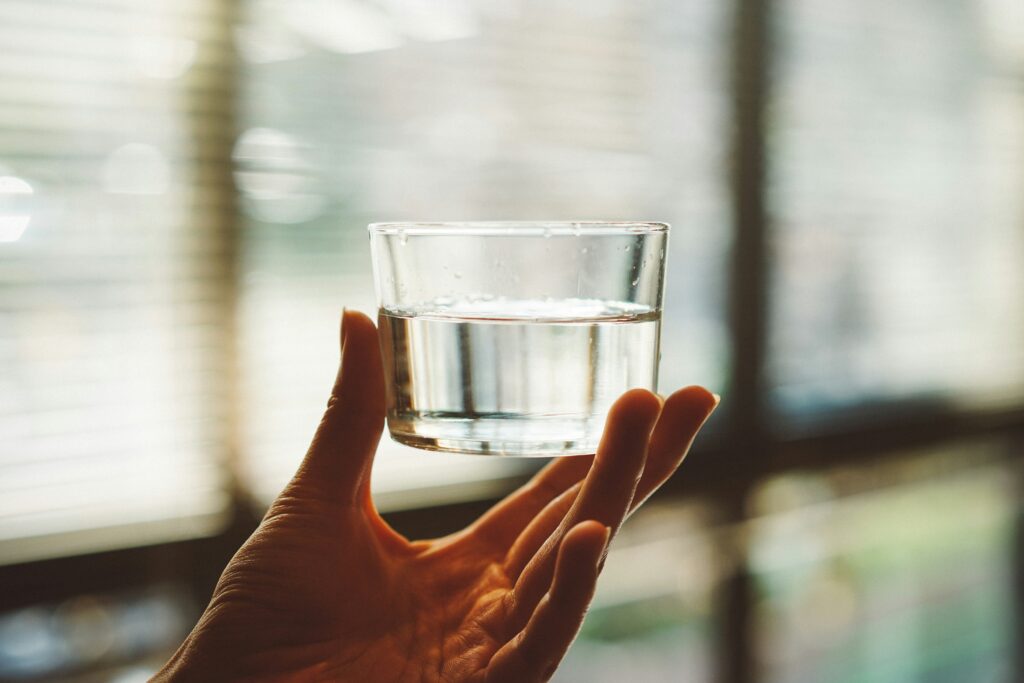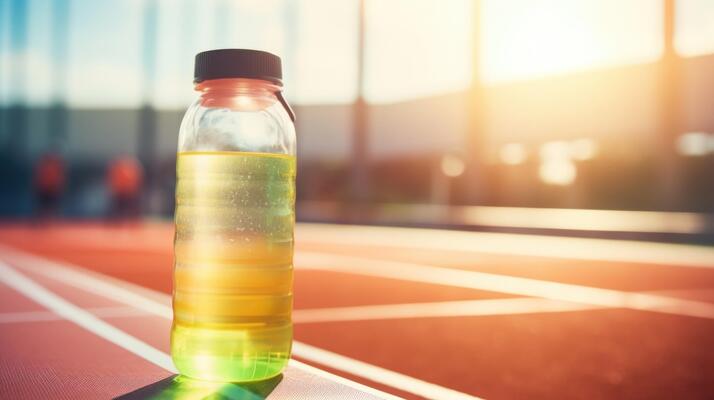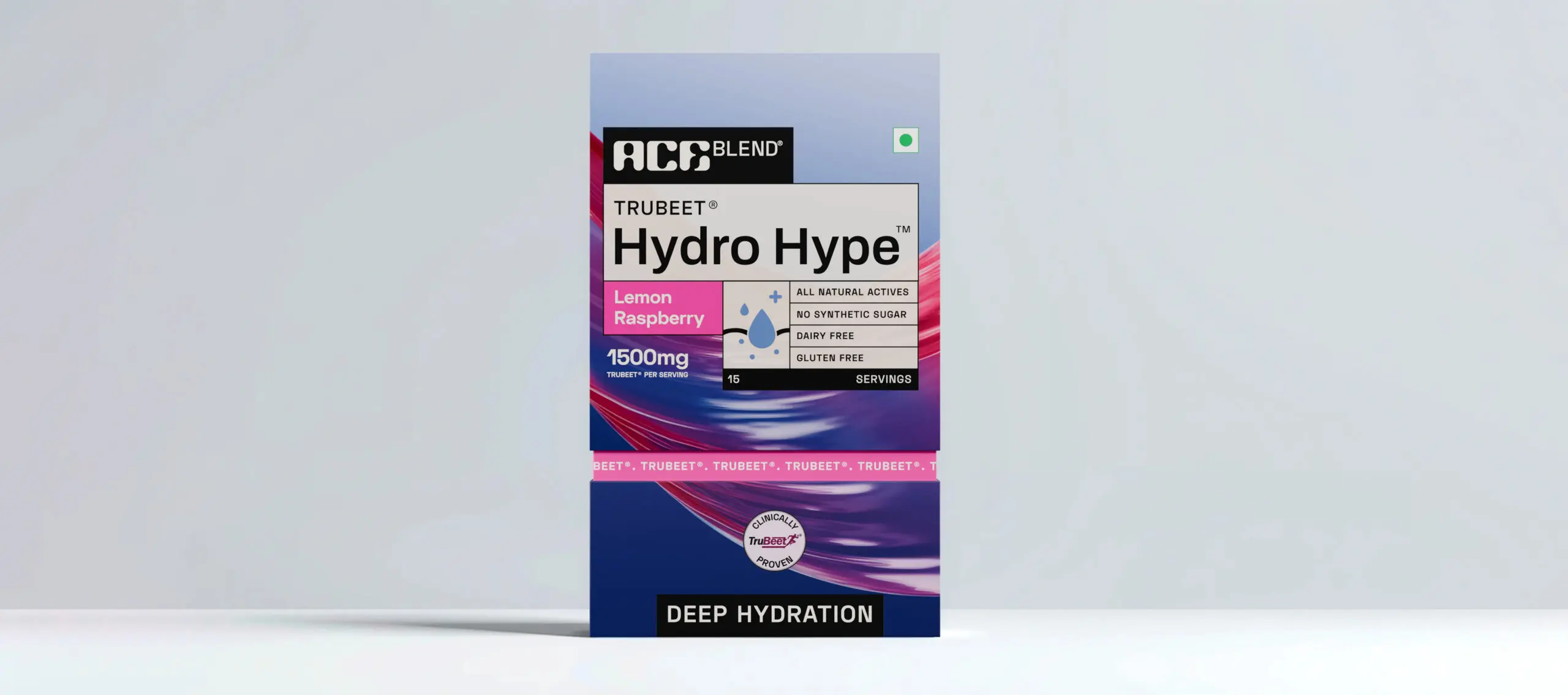Sipping water all day? Your cells may still be thirsty

Water is life: an undeniable truth. Every health guideline emphasizes drinking enough water and most of us follow suit, believing we’re doing the right thing. Yet, many experience low energy, brain fog, sluggish digestion and persistent skin dryness.
So, where’s the disconnect?
Hydration isn’t just about the water you drink; it’s about how well your cells absorb and utilize it.
At a microscopic level, every function in your body depends on cellular hydration. Without the right balance of essential minerals, water struggles to reach where it’s needed most, leaving your cells & body functioning suboptimally.
More Water ≠ Better Hydration
It is widely assumed that higher water intake equates to better hydration. If that were the case, dehydration-related issues would be far less common.
Hydration is not just about volume, it is about absorption.
While dehydration is well-known, overhydration is equally dangerous. Excess can cause dilutional hyponatremia (low sodium levels), leading to fatal complications and even death.
A 35-year-old U.S. woman lost her life after drinking 2 liters of water in just 20 minutes. Overwhelmed by thirst, she consumed excessive water rapidly, leading to cerebral edema (brain swelling) and ultimately death.
Hydration isn’t just water, it’s chemistry
For your body to effectively utilize water, it needs the support of electrolytes like sodium, potassium, magnesium, calcium, chloride and phosphate. These essential minerals regulate fluid balance, nerve function and muscle contractions at a cellular level.
Imagine your cells as sponges. Without enough electrolytes, they either dry out or become waterlogged, disrupting vital functions. This delicate balance impacts several daily body functions.
You don’t have to be an athlete to lose electrolytes. Sweat, stress, poor diet and excess water can deplete them, causing fatigue, cramps and brain fog, even with proper hydration.
Nature’s electrolyte supply
Electrolytes are naturally found in whole foods. Coconut water, citrus fruits, bananas, leafy greens, nuts, seeds, dairy and legumes help maintain electrolyte balance. Unrefined salts (like sea/ Himalayan salt) and fermented foods (kimchi/ pickles) also supply these minerals.
For most people, a well-rounded diet provides enough electrolytes to maintain overall balance, sourced from fruits, vegetables, dairy, nuts, seeds and natural salts. The requirements are higher in:
1. Hot and humid climates
2. Intense physical activity
3. Chronic stress
4. Illness recovery
5. Restrictive diets
Beyond H₂O: The structured water
Water in its natural state, untouched by human processes, exists in a structured form, often found in mountain springs and glacier melt.
Some researchers propose that water takes on a more organized molecular arrangement in these natural sources, mirroring the water inside our cells.
While hydration largely depends on electrolyte balance, emerging discussions suggest that the structure of water itself might also play a role. Some believe it can be created through methods like vortexing, infrared exposure and magnetic fields, potentially enhancing its ability to hydrate cells more efficiently.
Research on structured water is still in its early stages and scientific opinions remain divided. Some findings suggest it may act like a natural battery, storing and delivering energy to cells, thereby supporting cellular function and hydration more effectively than regular water.
Electrolyte supplementation: Balance or Overload?

Commercial electrolyte drinks are known for replenishing minerals and supporting hydration. However, many fall short by compromising both effectiveness and health benefits.
1) High sugar content: Causing weight gain & associated complications.
2) Artificial additives & fillers: Use of brominated vegetable oil (BVO) affects the product quality.
3) Heavy metals: Contain traces of lead, arsenic or cadmium.
4) Imbalanced mineral ratio: Over/undersupply of minerals.
Can you overdo electrolytes?
Absolutely. Excess intake can disrupt the body’s mineral balance, posing health risks. It can lead to issues like hypertension and swelling (excess sodium), irregular heart rhythms and muscle weakness (excess potassium & calcium) and digestive discomfort or cardiac complications (excess magnesium).
Pink Tiger says, Hydrate Smart!
Choosing the right electrolyte supplement goes beyond just grabbing any sports drink. Here’s what to look for:
1) Balanced electrolyte composition: Should contain essential electrolytes physiologically appropriate ratios to support optimal function.
2) No additives: Free from synthetic dyes, artificial flavors, and emulsifiers like BVO.
3) Heavy metal testing: Ensures the absence of contaminants like lead, arsenic or cadmium.
4) Bioavailability: Uses bioavailable forms of electrolytes, instead of poorly absorbed forms.
5) Low glycemic impact: Avoids high sugar content, which can cause insulin spikes and contribute to metabolic dysfunction.
Sorting through electrolyte supplements can be overwhelming. We’ve done the work for you!
Ace Blend Hydro Hype has been Pink Tiger Verified for its nutritional accuracy, ensuring TruBeet™ and essential electrolytes align with label claims. It has undergone rigorous heavy metal screening, confirming the absence of excess heavy metals.
The electrolyte composition is balanced to support optimal hydration and cellular function, while its 12 essential vitamins are verified for accuracy, ensuring complete nutritional integrity.
Hydration isn’t just water, it’s science. Get it right.
Discover the Pink Tiger verified electrolyte here.
Disclaimer: This content is for informational purposes only and is not a substitute for professional medical advice, diagnosis, or treatment. Always consult your healthcare provider before trying any new food items, supplements, or products.
References
1) Kalra, D. (2023). Overhydration: A boon or bane. Indian Journal of Pharmacy and Pharmacology, 10(2), 73–75. https://doi.org/10.18231/j.ijpp.2023.017
3) Choi, D., Cho, J., Koo, J., & Kim, T. (2021). Effects of Electrolyte Supplements on Body Water Homeostasis and Exercise Performance during Exhaustive Exercise. Applied Sciences, 11(19), 9093. https://doi.org/10.3390/app11199093
4) Ramsey, C. L. (2023). Biologically Structured Water (BSW) – A review (Part 1): Structured Water (SW) Properties, BSW and Redox Biology, BSW and Bioenergetics. Journal of Basic & Applied Sciences, 19, 174–201. https://doi.org/10.29169/1927-5129.2023.19.15
5) Lindinger, M. I. (2021). Structured water: effects on animals. Journal of Animal Science, 99(5). https://doi.org/10.1093/jas/skab063
6) Kasia, C., Henry, C., & Santucci, P. (2019). A case of electrolyte disturbances leading to flecainide toxicity at normal serum levels and pacemaker malfunction. HeartRhythm Case Reports, 5(9), 448–451. https://doi.org/10.1016/j.hrcr.2019.05.007
